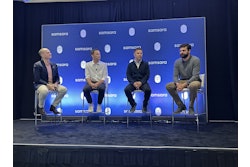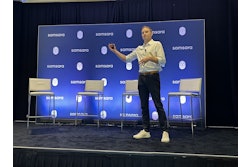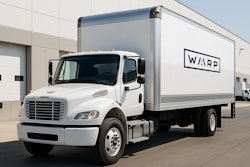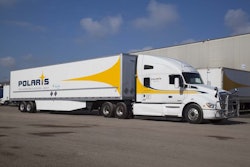Pennsylvania-based Pitt Ohio uses electronic data interchange via its website to accept shipment requests in an automated way, but like most, the TL and LTL carrier’s customer service team still gets hundreds of those requests via email every day.
A customer service job is more than inputting pickups into a system, said Pitt Ohio Executive Vice President and Chief Information Officer Scott Sullivan. So in 2023, with copious amounts of headlines about artificial intelligence disrupting technology, Pitt Ohio set out to discover if AI could help the carrier eliminate the tedious task of copy and pasting bill of lading data from email into their transportation management system so customer service associates could devote more time to … well, customer service.
The carrier recently developed a no-touch-email system with help from AI-driven strategy and engineering firm Vaital. The system, called N@TE (No @ Touch Email), automates email-based order intake for TL and LTL carriers.
It has resulted in significant operational gains, including a 30 to 60 times efficiency boost in email order processing times with over 99% accuracy in order extraction and fulfillment and a 70% reduction in costs for pickup order handling.
Prior to implementing N@TE, it took customer service anywhere from five to 15 minutes to process an email request: opening the email, reading the email, interpreting the email and plugging all the information into the system to then send to a dispatcher to assign to one of its 1,000 trucks. Now, it takes seconds.
“The response time back to the customer now is pretty much immediate,” Sullivan said. That time savings “was the overall efficiency gain, not only from a customer side of a quicker response, but then from a customer service rep side, being able to focus on other items in their queue.”
To email and beyond
Vaital CEO David Yunger said his company solves the burning question of how companies can use AI to improve their organization. He said 86% don’t have an AI strategy nor the engineering capacity to execute on that strategy.
He said outside of searching ChatGPT, Pitt Ohio had never worked with AI. Now the carrier is working on multiple AI projects with Vaital.
The IP that N@TE is built on can solve a lot of different problems beyond just email, “but I think email keeps it real for people because we're all overwhelmed with it every day,” Yunger said. “Handling pickups, handling deliveries, so much of that is manual, and pretty much anything that's cutting and pasting data is a prime example of what's ripe for generative AI.”
“N@TE and the IP that we built here can be applied and customized to a wide range of scenarios,” he added.
Built on Microsoft Azure, N@TE leverages enterprise-grade cloud infrastructure to deliver scalability, security and high-performance AI processing. The tool is built via application programming interface (API) and integrates with transportation management systems.
Pitt Ohio integrates with another third-party platform that sorts normal business emails from emails that contain pickup requests. Those with requests are auto filtered to N@TE via API.
N@TE scans the email, pulling all the necessary information – shipper and receiver data, package details like commodity type and dimensions, special instructions and more – to produce a pickup order within seconds and send it where it needs to go without human intervention.
Snowball effect
Many companies want to jump into AI but don’t know where to start. Just like the Nike slogan, the experts say “just do it,” and things will progress from there.
Pitt Ohio is now working to build AI capabilities around using images for dimensioning with goals to implement AI into the equipment lifecycle, Sullivan said.
But the carrier isn’t limiting its AI success to its own company.
The carrier owns the IP (intellectual property), recently obtaining approval for patent, and Vaital has a joint licensing agreement with the carrier to provide N@TE to the TL and LTL industries at large.
“I think it could be a potential game changer down the road from AI and how freight is going to be handled,” Sullivan said. “You hear a lot of information (about AI), but it's pretty cool to see it in real life happening at this point.”











